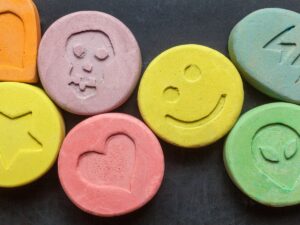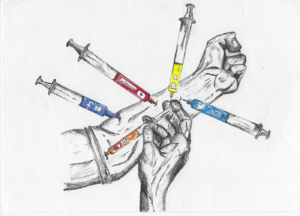Cocaine use has taken a serious toll on the health of Americans. In 2018, a national survey found that almost 1 million Americans meet the criteria for cocaine use disorder. Since that time, cocaine use has been on the rise–wreaking havoc in American communities and increasing deaths by overdose.
If you or a loved one is thinking about getting treatment for cocaine use disorder (CUD), determining what kind of treatments you need and how long they will take are primary concerns.
If you have spent time on addiction forums, you may have seen phrases like “inpatient”, “detox” or “residential inpatient treatment” being thrown around and wondered how these terms fit into addiction recovery. Today we will be discussing the timeline for cocaine addiction, recovery as well as providing you with useful information about addiction treatment programs for cocaine abuse and addiction.
Cocaine addiction treatment
Addiction treatment for people with cocaine use disorder and other drug addictions is designed to address the needs of individuals as they continue their journey on the path towards recovery. People who first enter addiction treatment, might attend a drug detox program or go straight to an inpatient or an intensive outpatient program depending on what best fits their overall needs.
After the intensive phase of addiction treatment ends, addiction recovery for cocaine use continues. Many people find that a weekly outpatient program, joining a 12-step program, or attending some other weekly addiction counseling group helps to keep sobriety in perspective.
Cocaine Detox
Before the bulk of treatment can begin, it is important for the body to readjust to being without the drug. In medical detox, a person is evaluated to determine their physical and psychological condition. This helps to determine any potential complications to detox treatment early on.
In medical detox, trained staff are available 24/7 to consistently monitor the patient’s condition, keep them hydrated, nourished, and comfortable as the body experiences a range of cocaine withdrawal symptoms.
Cocaine detox, despite being less physically intense than other abused substances, has some caveats.
- There are currently no FDA-approved medications used for cocaine withdrawal.
- Cocaine users often abuse other substances like alcohol or marijuana, sometimes in the same setting.
- Initial withdrawal symptoms appear in the form of a crash whereby a person experiences extreme exhaustion.
- Acute (or severe) withdrawal symptoms for cocaine users typically last 5-7 days.
- People who abuse drugs commonly also have mental health conditions. These co-occurring disorders can cause additional discomfort and increase the likelihood of relapse as a post-treatment outcome.
- Once these more severe symptoms have subsided, the individual experiences less severe post-acute withdrawals symptoms or PAWS.
Inpatient Rehabilitation for Cocaine Addiction
At a residential inpatient treatment center, patients live in a 24/7 medically managed facility usually for 1-3 months. While in treatment clients have access to:
- Individually tailored treatment plans
- A safe relapse-free environment
- Set treatment end dates
- Medication management services
- Group and individual counseling (including 12-step and other alternative counseling programs)
- Evidence-based therapies have been shown to improve recovery outcomes
- Recreational and Holistic therapies (such as art therapy, yoga, and meditation)
- Access to recreational areas (gyms, pools, and tennis courts)
After completing an inpatient cocaine detox program, patients are encouraged to step down to either a partial hospitalization or intensive outpatient program.
Sometimes if a person has financial constraints or does not need an intensive program, they may opt for a regular outpatient program. These programs can provide greater flexibility and a lower weekly commitment.
How Long Does Cocaine Recovery Take?
In the early stages of addiction treatment, programs have set start and end dates. Because of this, people tend to associate the end of recovery with the end of their rehabilitation program. This, however, is not the case.
Life can present challenges that put people at low points. When things are going well, sobriety is easier to manage. When it isn’t, self-doubt can find its way in. This by no means suggests that sobriety is unattainable, but rather that recovery takes a lifetime of commitment.
Rather than seeing recovery as the endpoint of addiction treatment and relapse as a failure to change or succeed, we are instead encouraged to view recovery as a life-long journey and commitment to avoid the self-sabotaging behavior of drug abuse.
Get Help Today with Overcoming Cocaine Addiction
If you or a loved one are looking for an addiction rehab or detox program for substances All American Detox Center is here for you. Call addiction helpline number. We are an accredited addiction recovery center serving Los Angeles County, California.






